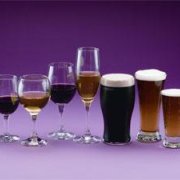Diarrhoea
- Atropine Sulphate/Diphenoxylate Hydrochloride (Lomotil)
- Loperamide Hydrochloride (Imodium)
- Drink plenty of fluids - 6 - 8 glasses of water a day
- Eat regular meals
Headaches
- Paracetamol (Panadol)
- Massage
Nausea and Vomiting
- Metoclopramide (Maxolon)
- Prochlorperazine (Stemetil)
- Eat small meals and snacks often
- Drink plenty of water
- If vomiting, stop eating solid food and try small sips of liquid, or sucking an ice cube. Try a small amount of food once you have kept fluids down for a few hours
- Rehydration/sports/isotonic drinks such as ‘Powerade'
- Avoid citrus and caffeine on an empty stomach
Pronounced agitation or insomnia
- Benzodiazepines: Diazepam, Temazepam tablets* (*Risk/benefit analysis required due to propensity for misuse and exacerbation of depressive symptoms)
- Reduce coffee, tea, cola and energy drinks during the day and have none after 2 pm
- Eat 3 meals a day and avoid heavy, spicy meals late at night
- Avoid napping during the day and keep to regular bed and wake times
- Exercise regularly (in the day, not after 6 pm)
- Use relaxation techniques
- Avoid doing things (i.e. tough phone calls) that might upset you before going to sleep
- Have a bath in the evening
Stomach cramps
- HyoscineButylbromide (Buscopan)
- Have a bath
- Use a heat rub/ wheat bag
- Massage
Aches and pains
- Ibuprofen
- Have a bath
- Use a heat rub/ wheat bag
- Do gentle exercise e.g. walking
- Massage
Cravings
- Remove ‘cues’ or reminders of use as these intensify craving.
- Keep busy, use distractions
- Focus on what is happening at the moment and take each hour and day as it comes. Thinking too far ahead can often be overwhelming and counterproductive.
Sweating
- Have regular showers or baths
- Paracetamol - take as directed on the packet

